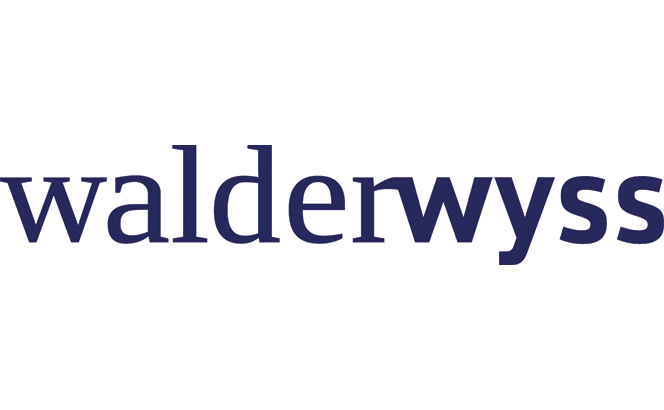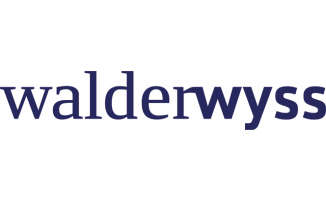1. What are the key regulatory requirements and compliance considerations for financial institutions operating in Switzerland?
Any entity active in or from Switzerland in the financial sector, depending upon the type of activity, may become subject to regulatory approval requirements. A large range of legal, prudential and self-regulatory provisions aim at securing appropriate client protection, as well as the stability and integrity of the Swiss financial market. The main regulatory requirements in this regard would be the license or authorisation requirements for:
i. banks (under the Banking Act);
ii. independent asset managers, trustees, managers of collective assets, fund managers and securities dealers (under the Financial Institutions Act); and
iii. investment company with variable or fixed capital (SICAV/SICAF), limited partnerships for collective investment and representative of foreign collective investment schemes (under the Collective Investment Schemes Act).
In addition to the license or authorisation, the provision of financial services is itself subject to stringent regulations in terms of conduct, quality and offering, which are mainly governed by the Financial Services Act. The purpose of these regulations is to ensure an appropriate level of protection of the clients.
2. How does Swiss banking law address issues related to data privacy and client confidentiality in the financial sector?
Any information related to a client of a Swiss bank is protected by a strict banking secrecy in Switzerland. The violation of such secrecy may lead to serious criminal sanctions under the Banking Act (up to five years of detention). Similarly, financial institutions subject to regulatory supervision are bound to keep client-related information strictly confidential. A violation of this duty may constitute a criminal offence under the Financial Services Act (also up to five years of detention).
In addition to these specific protective provisions, the Federal Data Protection Act applies to entities operating, collecting and processing data in Switzerland. A revised Federal Data Protection Act entered into effect on 1 September 2023 which improves Swiss data protection law and adapts it to the European GDPR with a Swiss finish.
3. Can you explain the process and requirements for obtaining a banking license in Switzerland, and how long does it typically take?
Under Swiss law, any entity (i) accepting deposits from the public above CHF100m on a professional basis or soliciting such deposits publicly, or (ii) offering financing to a larger public is, inter alia, considered as a bank and must apply for a banking license.
Obtaining a banking license is a complex undertaking. The application process may last more than 12 months and is led by the Swiss Financial Market Supervisory Authority (FINMA).
To obtain the banking license, the applicant must among others, meet strict prerequisites which include:
i. a minimum capital minimum CHF10m;
ii. an appropriate business plan;
iii. a guarantee of irreproachable business conduct for any qualified participation holders and management members;
iv. a management operating from Switzerland;
v. appropriate risk management and internal control systems; and
vi. the appointment of recognised auditors (for the application process and the subsequent supervision). When the applicant is controlled by foreign persons, it must in addition show that the relevant jurisdictions of the foreign persons provide reciprocity for Swiss financial institutions.
4. What are the main legal challenges and considerations for foreign financial institutions looking to establish a presence or conduct business in Switzerland?
In short, foreign financial institutions may establish a presence in Switzerland through a subsidiary, a branch or a representative office. Such establishment shall trigger authorisation requirements which are obviously much more stringent for a subsidiary than for a branch or a representative office. The need for an authorisation is usually triggered either by the fact that the entity is a financial entity regulated abroad and/or by the fact that the foreign entity establishes a permanent presence in Switzerland with a regulated professional activity.
For instance, a foreign bank having employees in Switzerland who only represent the foreign bank for advertising or other purposes may have to apply for an authorisation to act as a representative office, which will trigger a relatively light regulatory supervision. On the other hand, when the employees in Switzerland manage customer accounts or have the power to bind the foreign entity toward clients, a license to operate as branch of a foreign bank will be required.
5. How does Swiss law handle issues related to anti-money laundering (AML) and know your customer (KYC) requirements for banks and financial institutions?
Switzerland has adopted a tight set of rules over the past decades with respect to anti-money laundering and counter-terrorist financing. The Federal Act on Combating Money Laundering and Terrorist Financing is at the core of these regulations and applies to all so called ‘financial intermediaries’. This legal framework includes duties to identify the contracting party and the ultimate beneficial owners of the contracting party, the clarification of the purpose of a business relationship and the economic background of certain transactions, as well as to report suspicious transactions.
In recent years, the AML regulation has continuously been strengthened and adapted to international standards, such as those set forth by the Financial Action Task Force. A revision of the anti-money laundering act entered into force on 1 January 2023. New changes have already been proposed by the Swiss government, such as the introduction of increased transparency rules for legal entities, a national register of beneficial owners of legal entities and due diligence requirements for legal advisors (including lawyers).
6. What are the current trends and developments in Swiss financial regulations that businesses in the sector should be aware of?
In addition to recent changes made to the regulation to take into account the blockchain, such as the so-called ‘fintech license’, new developments are being discussed and elaborated by the Swiss government and regulator. Self-regulatory and industry associations are also preparing changes to their regulations.
Notable changes will be the introduction of rules related to ESG principles and their application within Swiss financial companies.
7. How does Swiss law address disputes and litigation involving financial transactions and banking matters, and what dispute resolution mechanisms are commonly used?
Disputes with banking clients are mainly tried before civil state courts in Switzerland. These proceedings are both very time consuming and expensive. Depending on the relevant contractual provisions, arbitration may also be used to settle such disputes.
A specific mediation procedure is set forth in the Federal Financial Services Act, but it is not often used. Since February 2021 all financial service providers that do not provide financial services exclusively to institutional or professional clients must be affiliated with a mediation organisation. Likewise, a banking client may submit (or may even be obligated to submit if the general conditions of the bank provide so) his claims to the banking ombudsman before filing his/her claim before state court. The ombudsman will try to settle the dispute without any decisional authority.
8. What are the recent changes or updates in Swiss financial laws or regulations that have had a significant impact on the industry?
The introduction of the Financial Services Act and the Financial Institutions Act on 1 January 2020, is the recent change which had the most significant impact on the financial industry.
The new rules regarding the provision of financial services and the new licensing requirements by FINMA for services providers, in particular for external asset managers, which were not subject to any state authorisation triggered a major challenge to the sector, and pushed smaller players to regroup in order to benefit from economy of scale to absorb new administrative costs and ensure a certain degree of sustainability.
9. How do Swiss laws and regulations concerning fintech and digital banking services differ from traditional banking, and what opportunities and challenges do these present for businesses in the financial sector?
The Swiss regulators and authorities have adopted a so-called ‘technology-neutral’ approach to encourage innovation in the financial services industry during the last decade. The most notable changes of the past years were the introduction:
i. of a so-called ‘fintech license’ (as per article 1b of the Banking Act) to avoid the application of the stringent banking licensing requirements for start-ups in the financial sector; and
ii. of a license as a Distributed Ledger Technology trading facility (within the meaning of the Financial Market Infrastructure Act). Both institutions are subject to a supervision by the FINMA.
For more information contact

Patrick W. Vogel, Partner
E: patrick.vogel@walderwyss.com

Laurent Schmidt, Senior associate
E: laurent.schmidt@walderwyss.com














